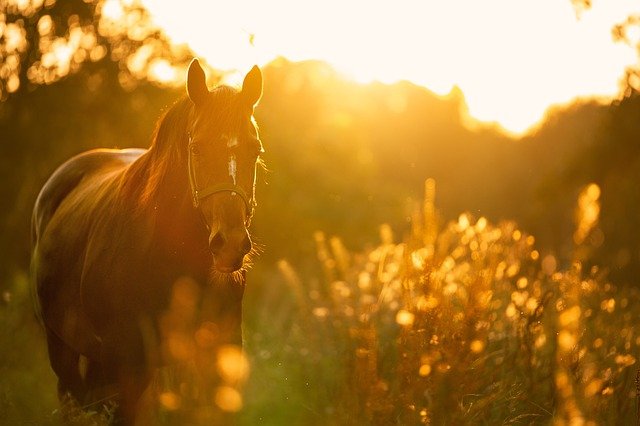Pure Vitamin C For Horses

Humans know vitamin C as the nutrient we get when we eat oranges and that helps to protect us from getting sick. For horses, vitamin C works largely in the same way; however, they do not need to eat citrus fruit to acquire it.
Horses need vitamin C for their immune health, and they can generate it themselves from glucose within their liver. According to the website TheHorse.com, it is estimated that 72 grams of the vitamin are synthesized each day. It is also water-soluble, meaning excess amounts can be flushed from the body.
Yet even though equines can create large amounts of the nutrient without outside influence, there are still cases when additional supplementation may be necessary.
What vitamin C does and where it is found
"Dosages of necessary vitamin C amounts vary on a horse-to-horse basis."
Vitamin C, also known as ascorbic acid, functions primarily as an antioxidant that fights the presence of bacteria, viruses and cell-damaging free radicals within the body.
According to Equi News, the nutrient also has a number of other important functions including: assisting in the synthesis of collagen, hormones and vitamin E, calcifying bones, controlling antihistamines and converting vitamin D3 to calcitriol.
Plants are host to vitamin C in varying amounts. Green grasses have a significant amount and grains can have high concentrations when they begin to sprout. However, vitamin C levels drop as sprouts grow because the nutrient is susceptible to oxidation, and as a result hay is completely devoid of it.
Oxidation is also the reason vitamin C is usually not found in horse feeds but rather administered via other supplements methods.
What can result from vitamin C deficiencies
Vitamin C deficiencies are known to cause poor hair coat, hemorrhage, inhibited immune systems, delayed wound healing, degenerated or enlarged adrenal glands, scoliosis and lordosis.
Research on the effects of low ascorbic levels within the blood is still ongoing. According to Understanding Horse Nutrition, the circumstance was noticed in horses with other diseases; however, no research was found that directly pointed to minimal ascorbic acid presence as the cause of the ailments. It is possible that another condition could be the cause of an observed disease and low acids levels, in which case supplementing vitamin C may not alleviate any symptoms of the sickness.
When might supplementation be necessary?
There are a few circumstances when horses may need a vitamin C supplement – the most prominent of which would be when it's immune system could use a jolt. Another may be during periods of stress, as natural vitamin C production decreases below standard levels during times of anxiety as well as after long periods of work or while horses are suffering from wounds or infections.
TheHorse.com stated the dosages of necessary vitamin C amounts vary on a horse-to-horse basis. Typical supplementation ranges between 4 and 20 grams per day. Finish Line's Vitamin C Pure supplement has 14 grams per serving, a good middle ground for most horses.
Higher quantities may decrease a particular equine's ability to produce the nutrient on its own, which could create a problem if the horse is taken off the supplement suddenly. Horses getting extra vitamin C should be slowly weaned off the nutrient to avoid withdrawal.
Source: https://www.finishlinehorse.com/index.php/2021/05/23/why-vitamin-c-matters-for-horses/

0 Komentar